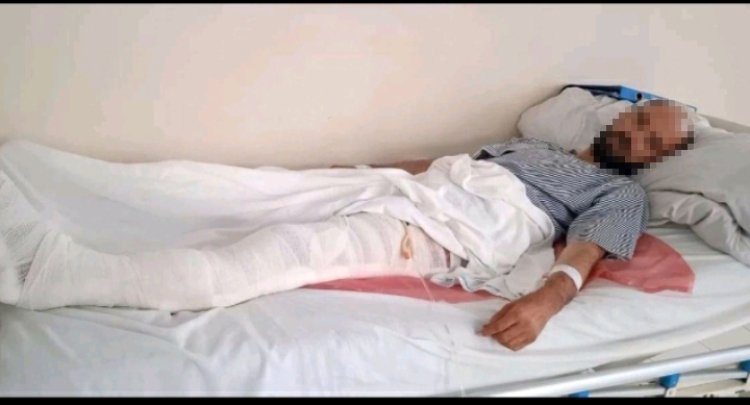From Torture to Deprivation: A Special Report on the Dire Conditions of Prisoners in Northern Afghanistan

As the human rights crisis in Afghanistan continues to intensify, alarming reports are emerging about the situation of prisoners in the northeastern provinces, particularly in the prisons of Takhar and Kunduz.
Informed sources told R.M. Media that a large number of detainees in these prisons are being held without having committed any crime or without a court order. They are subjected to torture, humiliation, and severe violations of their human dignity.
One such case involves Colonel Amruddin Ansari, who has been in custody for over a year without any legal warrant. According to information shared with R.M. Media by his relatives, Mr. Ansari was arrested by the Taliban in Takhar six days after last year’s Eid al-Adha and subsequently disappeared for several months. During this time, his family and loved ones had no knowledge of his whereabouts or condition. After months of uncertainty, he was transferred to Takhar prison and later moved to the military prison in Kunduz without any formal charges. Eventually, he was sent back to Takhar, and his case was forwarded to the Takhar City Court.
His family members say that during this process, Mr. Ansari's case file went missing, and only after much effort were they able to locate it. Despite repeated follow-ups throughout the past year, no official or institution has provided any response. The family insists that he has committed no crime and is being detained without even a preliminary trial. According to them, he has been subjected to severe torture, the effects of which are still visible on his body.
Meanwhile, harrowing reports continue to emerge about the deteriorating legal and human conditions in Takhar and Kunduz prisons. These reports point to systematic torture, deliberate humiliation, and behavior devoid of any humane principles.
Sources state that in Kunduz prison, there is "extreme prejudice and discrimination," and ethnic groups among the inmates are constantly insulted by the prison’s intelligence chief, a man known as Wasiq. According to insiders, Wasiq not only verbally abuses and insults the prisoners but also tortures them in painful and degrading ways. It is said that if a prisoner dares to protest against such mistreatment, they are severely beaten. In a further act of humiliation, their heads are forcibly shaved dry in public, and they are then locked inside a metal cage and suspended into a pit.
In one reported case, a prisoner named Mir Hamza was beaten without any known reason and had his head forcibly shaved. Sources within Kunduz prison confirm that such actions are routine and systematic. There have even been cases of suicide in the prison, but no official or authority has responded or initiated any investigation.
Sources also report that on visitation days, even the families of prisoners are not spared harassment and abuse by the prison staff, especially by the intelligence chief, Wasiq.
Prisoners, overwhelmed by the constant pressure, mistreatment, and lack of response to their complaints, have prepared a formal written complaint detailing the misconduct of prison staff—particularly Wasiq—and submitted it to the Taliban’s Ministry for the Propagation of Virtue and the Prevention of Vice. The detainees are urgently calling for immediate attention to their situation and intervention by human rights organizations to provide oversight and support.
At the same time, prisoners in Takhar prison also report dire conditions and mistreatment by officials. They demand immediate action to improve their situation and ensure their basic and human rights. Takhar prison, originally built to hold 350 individuals, currently houses more than a thousand prisoners. According to sources, prison authorities charge large sums from inmates under the pretext of “PCU” services. Prisoners are even forced to pay for unsuccessful phone calls; the cost is calculated per minute, and they must pay 10 Afghanis for every minute once they receive the phone.
R.M. Media had previously received numerous reports about the appalling conditions in Kunduz prison. During the winter season, sources reported a severe shortage of basic necessities such as clean drinking water, electricity, heating, and sanitary supplies. According to relatives of the inmates, some prisoners were forced to sleep under plastic sheets during the freezing nights, and many fell ill due to the lack of hygiene and proper facilities.
Months have passed, yet the situation remains unchanged. The blatant violation of human rights in northern Afghan prisons continues, with prisoners’ complaints still ignored and no action taken by Taliban authorities to improve the conditions.
Amnesty International recently warned in a report that 20,000 people, including 1,500 women, are currently imprisoned under Taliban rule and face risks of torture and extrajudicial executions.
